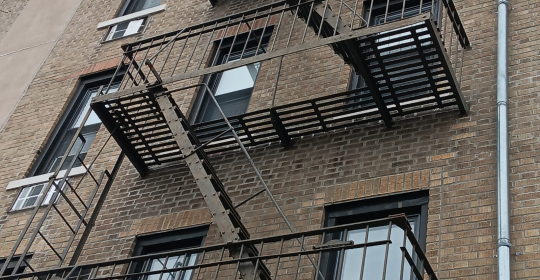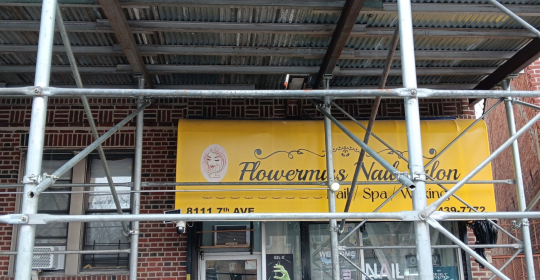Deep in the oilfields, workers build entire communities overnight. These man camps in the oil industry reveal the human side of a massive economic engine. Workers live in temporary housing. They work extended shifts. They're separated from families for weeks or months at a time. They create community with coworkers because that community is all they have. Those temporary cities power the energy industry. They're fueled by isolation, grit, and long hours.
Man camps exist because oilfields are often located far from permanent towns. A drilling site opens in remote terrain. Workers need housing. Companies build temporary communities instead of waiting for towns to develop. Workers arrive from across the country seeking high-paying work. They accept housing provided by employers. They accept extended schedules. They trade normalcy for income that would be difficult to earn elsewhere.
The temporary nature of man camps creates unique challenges and unique communities. Workers know they're temporary. They might leave next month or next year. That impermanence affects relationships and investment in community. Yet despite knowing they're temporary, workers create powerful bonds with coworkers. They share experience that most people never have. They endure challenges together. They become family in ways that more permanent communities sometimes don't.
The Rhythm of Work and Rest
Fourteen-day rotations are common in man camps. Workers work seven days straight, twelve to fourteen hours daily. Then they get seven days off, usually to travel home. That rotation creates rhythm to life. Intense work periods followed by absence from the camp. Workers endure two weeks of sacrifice to get one week of normalcy. That rhythm makes the intensity bearable for people who couldn't do it indefinitely.
Some rotations run longer. Twenty-one days on and seven days off. Twenty-eight days on and fourteen days off. Longer rotations mean fewer transitions but more extended time away from family. Workers adapt by making the best of whatever rotation they're assigned. They develop routines. They find community. They understand that this is temporary but that understanding doesn't make it easier.
Sleep becomes scarce in man camps. Workers work long hours then sleep in crowded housing. Noise from other workers, equipment, and weather makes sleep difficult. Workers become chronically fatigued. That fatigue affects decision-making. It affects safety. It affects relationships. Workers manage fatigue as best they can but never fully eliminate it.
Recreation options are limited in remote locations. Workers might have a break room with television. A small gym. Maybe a basketball court. Workers create their own entertainment. They play cards. They watch movies together. They work on vehicles. They maintain equipment. They find ways to occupy free time with limited resources.
The Cost of Temporary Living
Health suffers in man camps. The diet is often heavy on institutional food. Workers gain weight. They develop health problems. Fitness suffers from limited exercise options. Stress from isolation and difficult work compounds health challenges. Workers understand these health costs and accept them as part of the trade for high income.
Mental health deteriorates in isolation. Workers away from families develop depression and anxiety. The separation creates strain on relationships. Spouses handle childcare and household management alone. Children grow while parents are absent. Workers miss milestones. They worry about what's happening at home. They struggle psychologically with the separation.
Social support systems are limited. Workers have coworkers who understand the experience. But professional mental health services are scarce in remote locations. Workers dealing with depression or anxiety might have limited access to help. The camp provides peer support but not clinical support. Some workers struggle silently rather than seeking help they might not be able to find.
Financial strain occurs despite high income. Workers spend money on travel to see families. They spend money on maintaining vehicles. They spend money on communication like phone calls and internet. Their high income gets offset by these costs. Some workers still send money home to families. The finances work out better than alternative employment but they're not as generous as the base income suggests.
A Community Without a Zip Code
Brotherhood develops in man camps because workers depend on each other. They work together. They live together. They eat together. They celebrate successes together. They handle challenges together. That shared experience creates bonds that last beyond the camp. Workers who worked together in a man camp often remain friends throughout their lives.
Culture develops in each camp. Some camps have reputations for particular activities or characteristics. New workers learn the camp culture from existing workers. Traditions develop. Ways of doing things become established. That culture provides social structure that mitigates some negative effects of temporary living.
Community activities happen despite temporary nature. Camps organize events. Workers gather to celebrate holidays. They organize sports competitions between shifts. They have meal events where workers gather. Those activities remind workers that they're part of something larger than just individual employment.
Conclusion
Every drop of oil comes from people living far from home. Those people build progress one shift at a time. They endure isolation, fatigue, and separation from family. They create community with people they'll probably never see again after the camp closes. They do work that requires strength and sacrifice. That effort powers the energy industry that powers the modern world.
Man camps in the oil industry expose the human cost of economic production. Workers accept that cost for income and opportunity. That trade is their choice. But society benefits from their choice. The temporary cities fuel the energy that makes modern life possible.






